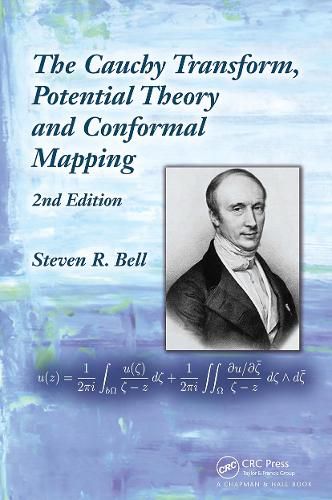Readings Newsletter
Become a Readings Member to make your shopping experience even easier.
Sign in or sign up for free!
You’re not far away from qualifying for FREE standard shipping within Australia
You’ve qualified for FREE standard shipping within Australia
The cart is loading…






The Cauchy Transform, Potential Theory and Conformal Mapping explores the most central result in all of classical function theory, the Cauchy integral formula, in a new and novel way based on an advance made by Kerzman and Stein in 1976.
The book provides a fast track to understanding the Riemann Mapping Theorem. The Dirichlet and Neumann problems for the Laplace operator are solved, the Poisson kernel is constructed, and the inhomogenous Cauchy-Reimann equations are solved concretely and efficiently using formulas stemming from the Kerzman-Stein result.
These explicit formulas yield new numerical methods for computing the classical objects of potential theory and conformal mapping, and the book provides succinct, complete explanations of these methods.
Four new chapters have been added to this second edition: two on quadrature domains and another two on complexity of the objects of complex analysis and improved Riemann mapping theorems.
The book is suitable for pure and applied math students taking a beginning graduate-level topics course on aspects of complex analysis as well as physicists and engineers interested in a clear exposition on a fundamental topic of complex analysis, methods, and their application.
$9.00 standard shipping within Australia
FREE standard shipping within Australia for orders over $100.00
Express & International shipping calculated at checkout
The Cauchy Transform, Potential Theory and Conformal Mapping explores the most central result in all of classical function theory, the Cauchy integral formula, in a new and novel way based on an advance made by Kerzman and Stein in 1976.
The book provides a fast track to understanding the Riemann Mapping Theorem. The Dirichlet and Neumann problems for the Laplace operator are solved, the Poisson kernel is constructed, and the inhomogenous Cauchy-Reimann equations are solved concretely and efficiently using formulas stemming from the Kerzman-Stein result.
These explicit formulas yield new numerical methods for computing the classical objects of potential theory and conformal mapping, and the book provides succinct, complete explanations of these methods.
Four new chapters have been added to this second edition: two on quadrature domains and another two on complexity of the objects of complex analysis and improved Riemann mapping theorems.
The book is suitable for pure and applied math students taking a beginning graduate-level topics course on aspects of complex analysis as well as physicists and engineers interested in a clear exposition on a fundamental topic of complex analysis, methods, and their application.